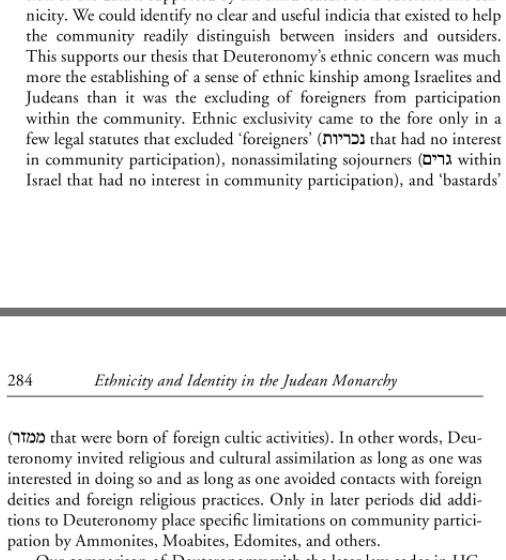Sparks says Israel tribes are ethnically inclusive.
- Type
- Book
- Source
- Kenton L. Sparks Non-LDS
- Hearsay
- Secondary
- Reference
Kenton L. Sparks, Ethnicity and Identity in Ancient Israel Prolegomena to the Study of Ethnic Sentiments and Their Expression in the Hebrew Bible (University Park, PA: Pennsylvania State University Press, 1998), 283-284
- Scribe/Publisher
- Pennsylvania State University Press
- People
- Kenton L. Sparks
- Audience
- Reading Public
- Transcription
We could identify no clear and useful indicia that existed to help the community readily distinguish between insiders and outsiders. This supports our thesis that Deuteronomy's ethnic concern was much more the establishing a sense of ethnic kinship among Israelites and Judeans than it was the excluding of foreigners from participation within the community. Ethnic exclusivity came to the fore only in a few legal statutes that excluded "foreigners" (נכרית) that had no interest in community participation), nonassimilating sojourners (גרימ within Israel that had no interest in community participation) , and "bastards" (ממזר that were born of foreign cultic activities). In other words, Deuteronomy invited religious and cultural assimilation as long as one was interested in doing so and as long as one avoided contacts with foreign deities and foreign religious practices. Only in later periods did additions to Deuteronomy place specific limitations on community participation by Ammonites, Moabites, Edomites, and others.
- Citations in Mormonr Qnas
The B. H. Roberts Foundation is not owned by, operated by, or affiliated with the Church of Jesus Christ of Latter-day Saints.

